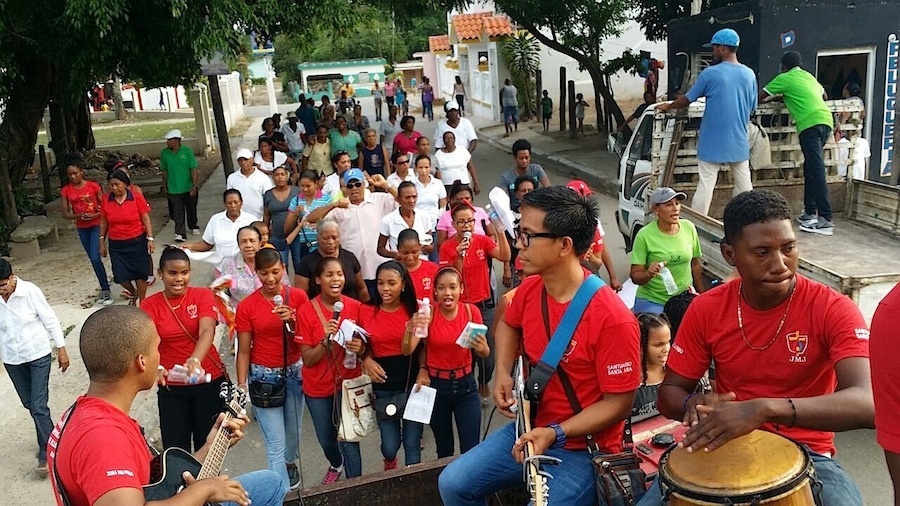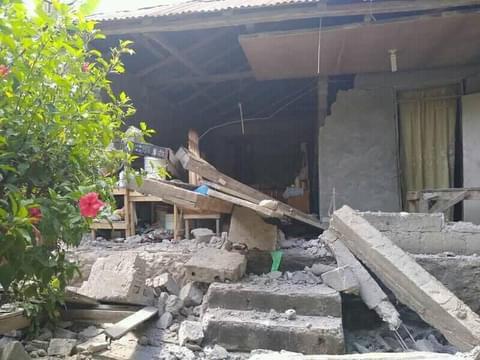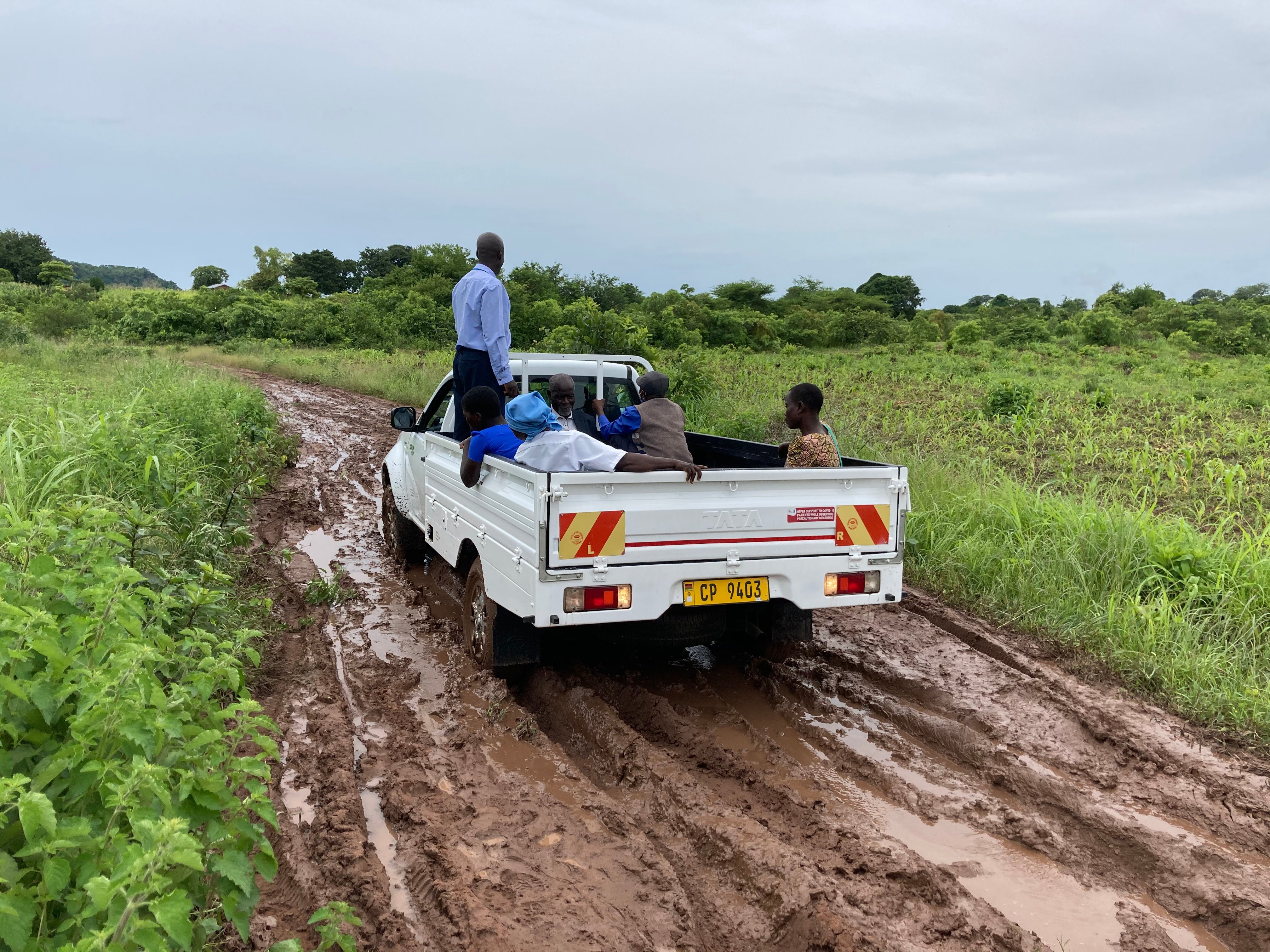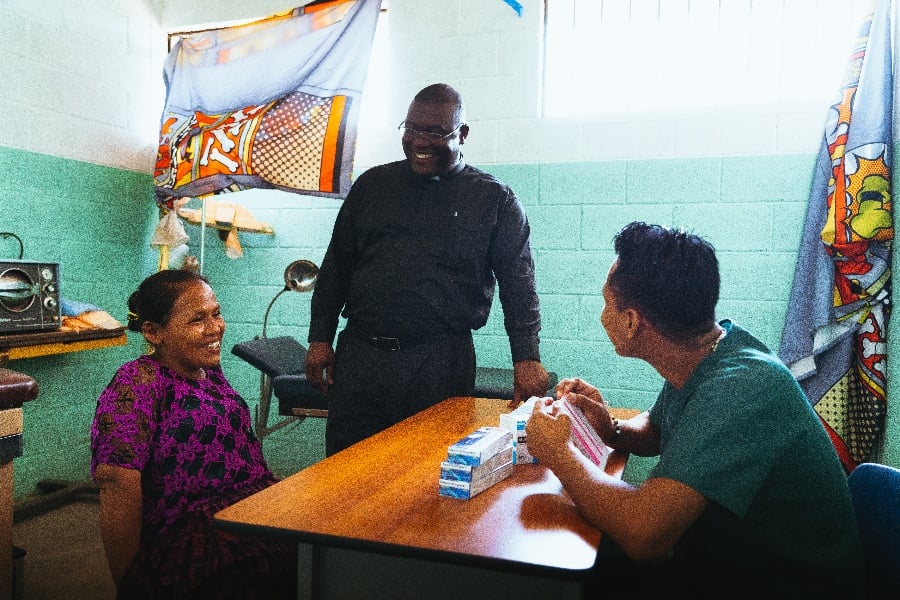 In my experience thus far with youth ministry in the Dominican Republic, I have found that young people are generally spontaneous, open-minded, dynamic, flexible, warm and lively.
In my experience thus far with youth ministry in the Dominican Republic, I have found that young people are generally spontaneous, open-minded, dynamic, flexible, warm and lively.
In the parish where I am now working, they are remarkably responsive to the many activities present in the church. I encounter the youth with music activities, sharing stories, and often they teach me new vocabulary and colloquial expressions that are commonly understood by them.
Nurturing the relationship between the Church and her young inspires me to be faithful and true to my ministry as a missionary priest. Working with young people is, first and foremost, a beautiful missionary experience that has also helped me to integrate into the CICM mission here the in Dominican Republic.
As a pastor, I have experienced that the young people here tend to confide their secrets and reveal their aspirations to their priests. This fact points to the need to be continually creative and dynamic in our pastoral approach toward working with the youth.
These Young People Are at the Heart of Parish Work
Quite often, the youth in my parish are the ones animating the congregation during our liturgical celebrations, because the majority of them are members of our choir groups. They are very service-oriented individuals and always make themselves available to help with the upkeep and cleanliness of the church and its surroundings. When needed, they have helped to cut the lawn and dispose of garbage from the parish grounds.
Their readiness to help their own church is an inspiring experience: one that drove me to strive more in my ministry to respond fully to their social and spiritual needs.
Giving responsibility to the youth is one concrete way that we try to foster their human development. Developing their accountability will enable the youth to appreciate and take on some social responsibility.
The youth ministry here in our parish is quite dynamic. Every Sunday they conduct their own prayer meetings. At times they invite us (priests) to give some kind of informative or educational talk; e.g., the teachings of the Church on a certain doctrine, etc. It is of their own initiative that they ask this.
Sometimes they organize small fundraising endeavors for their own projects and expenses. It is inspiring to see that they are quite industrious, independent, generous and dependable. For instance, they often ask us to use the kitchen in the house in order to prepare a dinner to follow their Sunday meetings. Though it does not happen every week, what is remarkable is that they do not ask us for anything. Instead, they contribute a certain amount amongst themselves to buy the food, and the girls normally do the cooking while the boys arrange other items. This experience tells me something about Dominican culture, and how these kids have been brought up. It is a wonderful spirit of cooperation to witness.
How Social Media Is Advancing the Spread of the Gospel
Where the cell phone was once considered a non-essential luxury item, today it is commonly accepted as a necessity and a basic communication tool for many, not just the youth.
 As a result of the phenomenon of cell phones and smartphones, we now have “handy access” to any kind of information the internet has to offer: right in the palm of our hands. For the youth, the prevalence of “selfies,” #hashtags and social networking can be an overwhelming distraction. However, I am happy to report that youth participation in the parish where I work remains solid and intact right now. This is in stark contrast to the parish in my hometown, where youth presence and participation in any parochial activities is very poor.
As a result of the phenomenon of cell phones and smartphones, we now have “handy access” to any kind of information the internet has to offer: right in the palm of our hands. For the youth, the prevalence of “selfies,” #hashtags and social networking can be an overwhelming distraction. However, I am happy to report that youth participation in the parish where I work remains solid and intact right now. This is in stark contrast to the parish in my hometown, where youth presence and participation in any parochial activities is very poor.
I was actually a bit pessimistic that the boom of social networking would be detrimental to the Church, and especially to the young people of this generation.
But there is a positive side to the emergence of the new culture that technology has brought: social media and social networking can actually be useful in relation to the propagation of the message of Jesus.
In fact, the Church of today is now using such tools to spread Jesus’ message of peace, love and justice to all parts of the world. The word of God is literally spread across the planet in this way––something that was discussed as a concept a dozen years ago when I was a student.
We have even seen how Pope Francis makes use of social media, and his activity generates great attention not only from Catholics but also people of various cultures and religions around the globe. More importantly, that activity attracts young people who can recognize themselves in his actions and openly claim their identity as Christians and as Catholics.
Poverty, Teen Pregnancy, and Other Challenges
The majority of the population where our parish is located are working class people. In the past, most of them worked for the sugar cane company. Since its closure several years ago, though, options are few and many must travel to neighboring provinces in order to provide for their families. Some families have children working abroad whose financial support is relied upon.
Poverty pervades the area and there are not sufficient government or private support structures to alleviate the misery of the people. Hence, every penny means a lot to these people. This is the backdrop of the brave and dependable youth in my parish. In spite of the hardship they may experience daily, still they are resilient and they are willing to give their best and show solidarity to one another.
One major concern facing the youth, parents and government authorities in the Dominican Republic today, is the issue of teenage pregnancy. It is alarmingly high, with some estimates placing the rate at double the world average. I consider it a threat to the future of the youth. There is currently a national informative campaign in the country, advising the public on how to avoid or lessen these incidents. But that is not enough. If the young are indeed the future of one’s country, then we must do what we can to take care of them––or risk the future of society and the Church.
The Youth Are Our Great Responsibility
As members of the Church, we firmly believe that we have a responsibility to support and guide our youth. They are the ones following our path, and they are the ones who will be responsible for the coming generations.
As part of God’s ongoing creation, the youth of today have a claim to God’s generosity: the same generosity that we have received. Let us each continue to do what we can to “pay it forward,” for the benefit of the entire Church. “For those led by the Spirit of God are children of God.” (Romans 8:14)
Attention: This story was originally published in Missionhurst Magazine. For the complete article, along with many others, check out our most recent edition of Missionhurst Magazine.








